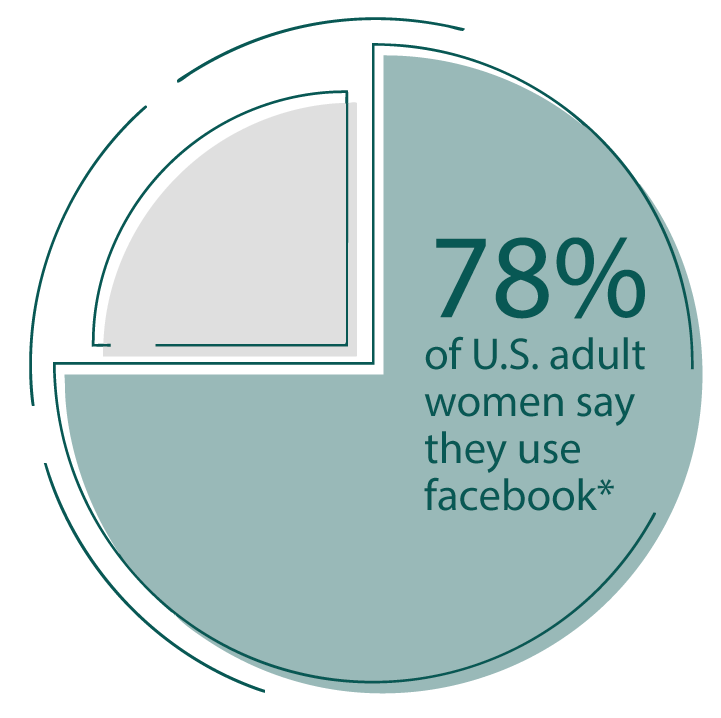What is Facebook?
Facebook is a social networking website and mobile app where people connect with friends, family, businesses and communities online. It’s one of the most widely-used platforms in the world for sharing updates, photos and events.
Who is on Facebook?
Facebook remains a primary social media platform for most Americans. 78% of adult women and 63% of adult men say they use Facebook.*
*Pew Research Center, November 2024. "Social Media Fact Sheet"

Why do people use Facebook?
To stay in touch with family and friends, near and far.
To connect with communities that match your interests—from travel groups to alumni networks.
To keep informed about local events, news or organizations.
To research brands and companies they might want to do business with.
How does it work?
Profile: Your personal page that shows your name, picture and posts you’ve chosen to share.
Friends: People you know and are connected with—their posts show up in your feed, and yours show up in theirs.
News Feed: The main page or "home" page you scroll through, where you see posts, photos and videos from friends, family and organizations you follow.
Groups & Pages: Dedicated spaces for shared interests—whether that’s local clubs, hobbies, professional networking or causes you support.
Events: A section on Facebook where users can discover, create and manage upcoming events, and see what their friends or followed pages are hosting.
Why do I need a Facebook Page?
A Facebook page isn’t just “another online profile.” It’s like having a digital storefront and reputation center that’s always open, even when you’re not. People looking for life insurance today often check Facebook before they ever pick up the phone. If they don’t see you there, they’ll likely find someone else who is.
How could it help my business?
Visibility: Your page makes you “findable” when someone in your town searches for life insurance agents. Instead of just a name in a directory, they see your photo, posts and community presence.
Trust & Credibility: People buy life insurance from someone they feel they can trust. By posting useful tips, answering common questions and showing up consistently, you build confidence before you even meet a client.
Referrals in Action: Clients who like working with you can “Like” your page or share your posts. That means their friends and family see your name, essentially turning your current clients into a quiet referral engine.
Community Connection: You can highlight local events, charities or even client milestones (with permission). This shows you’re more than just a salesperson; you’re part of the community.
Convenience: Many younger clients (and even plenty in their 40s–60s) prefer to message on Facebook instead of calling right away. A business page lets them reach you quickly, through direct private messaging, without crossing personal boundaries.
Ultimately, a Facebook page helps you stay relevant, approachable and visible. It doesn’t replace your relationship-building skills—it amplifies them so more people can find and trust you.
